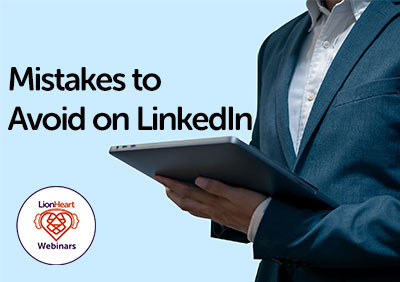Help! I'm a new graduate surveyor!

So you’re a brand new graduate surveyor! Congratulations….
Everything probably feels really new (and possibly a little nerve-wracking) There is a lot for you to learn, about the company, workplace, your role and your new colleagues.
So, what can you do to make sure that your time at your new firm is a success? Read on for 10 top tips for newly appointed graduate surveyors...
1. Plan ahead
If at all possible, before you start, read up on the company, where you will be working, what you should be wearing, who you will be working with and what you are likely to be doing. Dig out some University-level textbooks to remind yourself of the basics of your new role and key responsibilities. You could also give your confidence a boost with a new outfit for Day 1 of your new role. Plan your journey and mode of travel for Day 1 and aim to arrive at least 15-20 minutes early - don’t make things any more stressful than they need to be!
2. Don’t stress!
Everyone - and we mean *everyone* - has nerves and is likely to be at least a little bit anxious on the first day of a new role, even if they’re good at hiding it. Everything is new and there is a lot to learn! Remember though, we have all been there and know what you are likely to be going through. The best thing you can do is to relax, listen, learn and ask questions. Take a short walk at lunch to clear your head and write down anything important as you go.
3. Be curious
Ask questions if you are not sure what is expected of you or what you should be doing. Write down a list of your questions and then find time to sit down with the right person to run through them. It’s probably better to do it this way as you will then have the undivided attention of your colleague or supervisor, rather than them rushing to answer whilst attending to other business. Clarify anything that is unclear and don’t be afraid to ask for support or advice if you need it; this time of your career is about learning and exploring your trade. It takes time to build confidence and competence, so allow yourself to do this in your own time.
4. Make introductions
Meet your new team and colleagues and take time to learn about them and how the company works. Ask other people questions and, if you feel comfortable, share information about yourself and your skills too. This will help you to feel more comfortable in your new work environment and to allow you to apply your strengths to the team you are working in. Establishing connections and relationships early on in your new role will help to build a sense of belonging, as well as providing a vital support network. If you are starting at the same time as other graduates, then ‘buddy up’ and share your experiences as time goes on.
5. Set boundaries
Find out what is expected of you early on and explore how you can meet these expectations. Part of this involves setting your own boundaries; if you have significant family commitments then this may always be leaving the office on time, or it could be considering how you want to communicate with clients and colleagues. Consider how your work and personal lives interact and ensure that you can find a happy balance from the start. Often overstepping boundaries happens due to a lack of communication and clarity, so establishing what is acceptable and what is not for both you and your employer is key.
6. Ask for feedback
Seeking feedback is key to understanding what is going well, what isn’t going so well, what you can do to continue progressing and what might be a barrier to moving forward. Regular meetings with your supervisor or employer will help, so get these planned in the diary well ahead of time. Writing up your own notes from each to monitor your own performance can be a great way to reflect and learn. Performance doesn’t just have to be based on quantitative measures though, e.g., fee billing, it can also be qualitative - such as client satisfaction.
7. Update your LinkedIn profile
Having an up-to-date LinkedIn profile is a great way of showing potential clients who you are and why you might be the best person to act for them. It also showcases your own personal brand and the corporate brand of your employer. It also avoids any embarrassment if you are still ‘open to work’ or have an out-dated profile image! LinkedIn can be a great way to network with other surveyors, industry professionals and potential clients. (LionHeart runs some webinars on LinkedIn, so check out the links at the end of this blog!)
8. Organisation!
It can be overwhelming to take in all the new information you’ll be given in the first few months of your new role. Write everything down, especially if you are asked to undertake any tasks or work, or if there are any important points to note, such as company policy or where documents are kept. This way, you can’t forget anything and you will look to be on the ball at all times!
9. Make the most of new opportunities
You’ll be presented with a whole host of new opportunities in your new role, including training, instructions or projects, events and meetings. Accept those which you have time to attend and which will help you to grow as a professional. It’s also okay to say ‘no’ when you don’t feel that something will be a positive addition to your working life or where you simply can’t fit it in. Sometimes saying ‘no’ to something opens the door to something much more exciting and aligned to your goals and desires.
10. Have goals
This new role is the first day of the rest of your life, which means that planning ahead remains vital. Think about what you want to achieve in 3, 6 and 12 months’ time - and perhaps even 3-5 years ahead. Aligning each action you take to your short, medium and longer-term goals will help you to make good decisions and do the right things for you as a professional. Keep a written record of your plans, much akin to a business plan, to ensure you can monitor and amend your goals as time goes by. It’s also okay to change your plans if something is right - this could even include your new role not being right for you, and needing to consider moving on.
And finally...
Whether you love or hate your new role, sharing your experience with friends, family and trusted colleagues will help you to reflect and grow as a professional. Always seek support if something isn’t right, or if you feel you are being asked to do something which doesn’t sit right with you.
LionHeart is a fantastic source of external, confidential support for surveying professionals and their loved ones, so make sure you find out more about the services they can offer to support you at work and at home, throughout your careers.
Good luck!
Jen Lemen FRICS is co-founder of Property Elite, which provides training and support for the RICS APC, Assoc RICS and FRICS qualifications. She is also an RICS APC assessor. A version of this blog was first published by EG, where Jen often contributes to the APC Series.
Find out more:
Watch now! You can catch up with this webinar in our webinar library by clicking on the image or here



